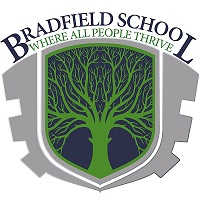Y11s Preparing for Success

An example of active revision in GCSE English Literature
Why do mock exams? Why should students prepare fully for these exams?
GCSE mock exams are opportunities to practice for the real GCSE exams. The mock exam period has been designed to be as true to the actual exam period as possible. Students will have the opportunity to sit full GCSE papers, in exam conditions in the location which they will sit their actual exams in the summer. This will provide students with an opportunity to scope out the exam process and to prepare themselves for their nerves by having an opportunity to adjust to a usually unfamiliar environment; it can be invaluable.
GCSE mock exams are also a practical way to test out the effectiveness of revision strategies and will be essential in identifying the areas of learning to target specifically on the run-up to summer examinations. They highlight, for the teacher and the student themselves, how much is known and so provide a clear foundation to build further knowledge upon. The exams will give an indication of the grade that could be achieved in the actual GCSE summer exam, but only if preparation is undertaken seriously. If students take the mock examinations seriously, teachers will be able to help provide support to attempt to help students improve their grades by the time the final GCSE exam week comes around. Mock exams can then help to identify strengths and areas for development. The student’s areas for development will become the focus of future lessons and further learning opportunities with teachers.
In addition to above, mock exam performance grades will also be used by teachers to provide accurate most likely outcomes for all students. These are used on post 16 provision application forms and will form the basis of whether applications are accepted. During the pandemic or in cases of emergency, mock exam grades have been used to support teachers in arriving at a final grade for students. This will be the case again, this year.
In conclusion, GCSE mock exams are important and should be treated as such. They can provide a clear foundation for revision tactics and academic growth and give students an indication on what they need to do to maximise their outcomes in their actual GCSE exams in the summer.
So, when should students start revising?
Revision time should give students enough preparation to confidently walk into the exams and retain knowledge. The ideal recommendation for the time before the exam to start revising is now for both the mock exams and the summer exams.
How do you start revising?
Yesterday, all students in Year 11 attended a workshop on revision techniques, which will be followed up on within school. It was wonderful to see so many parents and carers at the after school event too, allowing us to share insights into revision with you. Securing an external speaker to lead the workshop meant we were only able to give last minute notice, so we know many parents and carers could not make this event. We hope to share a video from the speaker with home shortly for those that missed the session.
All Y11 students have been advised to create a revision timetable. This will give students a routine to follow: Students will know which subject they are revising, when and will ensure that full coverage of subject revision occurs. Lots of free online templates are available, though it is always important not to spend so long creating the timetable that there is less time to revise! Revision Timetable Templates
An efficient way to revise is to list the subjects that you take and place them in priority groups. The highly prioritised subjects are the ones that contain the most areas for development, whereas the least prioritised ones are the subjects’ students are the strongest in.
Passive revision – such as reading and highlighting notes – will only get students so far. Practice questions and quizzes are active revision – the brain is forced to remember, recall and convey knowledge; it’s a great way to learn on the go what needs to be targeted. There are many free websites that students can use; we are in the process of updating our website to share these with you at home more efficiently.
It’s important to figure out which revision is the best for yourself. Some students effectively memorise information when reading through it. Others may find mind maps, or videos useful. Retaining the information through various methods is the first and hardest thing about revision but finding question papers and quizzes is a lot easier.
And finally, it’s important to maintain a healthy balance by allowing your brain to rest. Taking occasional breaks is highly recommended to process information best. Ensuring opportunities for fresh air, exercise, 8 hours of sleep and the intake of healthy food and water will also have a positive effect on students’ ability to focus, learn and perform to the best of their ability.
I would like to wish all Y11s the best of luck in their preparation for exams and in their up-and-coming mock exams. Should you have any questions or need any further support, please don`t hesitate to contact Gemma Furness, Rachel Ross or Dave Sleaford.
Gemma Furness
Assistant Head teacher: Quality of Education and Data, Assessment and Exams.
